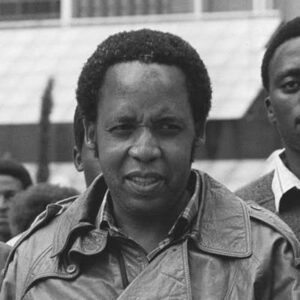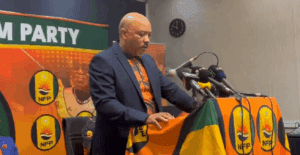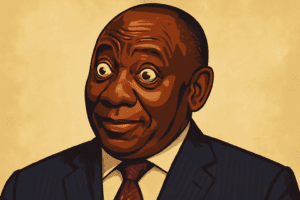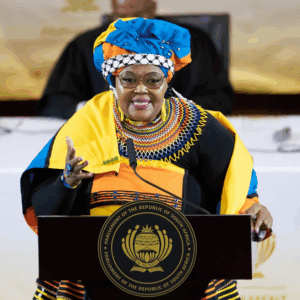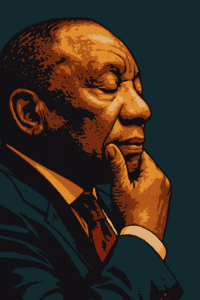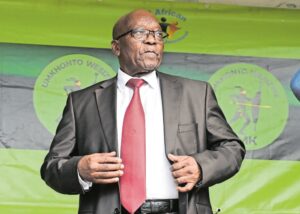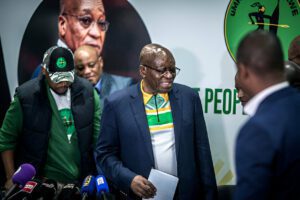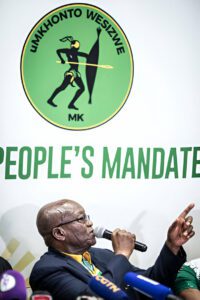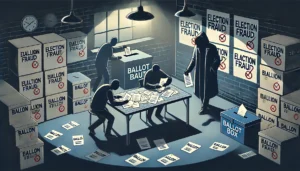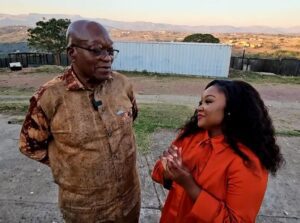Recent polls have ignited discussions around the potential political landscape after the 29th of May elections, speculating a notable performance by Jacob Zuma’s uMkhonto Wesizwe (MK) party. This intrigue is heightened by the possibility of MK claiming a substantial portion of the vote, potentially surpassing Julius Malema’s Economic Freedom Fighters (EFF) and securing the third-largest representation in Parliament.
The Unpredictable Political Landscape
Polling data from the last few weeks posits the MK party as a formidable contender in the upcoming general elections, possibly becoming the third-largest party. Some projections even suggest MK could lead in KwaZulu-Natal with just 25% of the vote. However, the reliability of these polls warrants scrutiny, given the infancy of the polling industry in South Africa and potential biases from the publishing organizations.
The major parties, ANC and DA, conduct extensive polling but generally keep these findings private unless strategically advantageous. Michael Beaumont of ActionSA criticized a Brenthurst Foundation poll for its seemingly improbable prediction of MKP’s surge to 13%, suggesting it serves more as a narrative tool for DA growth and a rallying cry against a leftist alliance.
Nonetheless, MK’s visible campaign efforts, such as the proliferation of Zuma posters in Randburg, signify a well-organized and funded operation. Zuma’s continued appeal, demonstrated by large gatherings and the nostalgic evocation of his presidency through campaign imagery, underscores his enduring influence despite the controversies surrounding his tenure.
The Zuma Factor and Public Sentiment
Jacob Zuma’s political dominance and the patronage networks established during his presidency contribute significantly to his current support base. His ethnic identity also plays a critical role, particularly in KZN, against the backdrop of declining real-term wealth among South Africans since his departure from office.
The public’s desperation for a saviour in these trying times has led to a resurgence of support for Zuma, despite his association with the state capture saga. Zwelinzima Vavi, Saftu general secretary, expressed regret for his previous support of Zuma, acknowledging the desperate circumstances driving people towards figures like Zuma.
Potential Parliamentary Dynamics
Should MK secure a significant parliamentary presence, it could reshape coalition possibilities, particularly weakening the EFF’s leverage as a coalition partner. The improbability of an ANC-MK coalition, given Zuma’s leadership of MK, further complicates potential alliances, leaving the DA as an unlikely partner for the ANC in a scenario where traditional allies falter.
The ambiguity surrounding MK’s candidate list and legislative experience raises questions about its policy direction and long-term viability, especially given the party’s current alignment with Zuma’s legacy.
Looking Ahead
The forthcoming elections could thus introduce a new layer of complexity to South Africa’s political landscape, challenging established alliances and possibly leading to unexpected partnerships. MK’s success could simultaneously reflect and exacerbate the nation’s political and socio-economic anxieties, underscoring the unpredictable nature of voter sentiment and party loyalty.
What does the potential rise of the MK party signify for South Africa’s political future?
As we consider the evolving political narrative, questions emerge regarding the agendas at play. Is the surge in support for MK a genuine reflection of public sentiment, or a strategic maneuver by certain factions within the broader political spectrum? How will the anticipated electoral outcomes influence the direction and policies of major parties, and what could this mean for the everyday South African? These considerations are pivotal as the nation approaches a potentially transformative electoral milestone.
What does the article try to achieve?
The article primarily focuses on the evolving political landscape in South Africa, highlighted by the potential rise of Jacob Zuma’s uMkhonto Wesizwe (MK) party and its implications for the traditional power dynamics, particularly affecting the African National Congress (ANC), the Economic Freedom Fighters (EFF), and potentially influencing new political alliances. While the article discusses various scenarios that could unfold based on the electoral performance of the MK party, including its impact on the ANC, EFF, and other political entities, it stops short of explicitly pushing an agenda for an ANC-Democratic Alliance (DA) alliance.
However, it does speculate on the strategic adjustments parties might need to consider in response to the shifting political tides. Specifically, it mentions the possibility, albeit unusual, of the ANC needing to work with the DA if the MK party’s performance significantly alters the current political equilibrium. This scenario is considered in the context of the ANC potentially falling below a 50% majority, thereby necessitating a coalition partner to form a government. The article suggests that the rise of Zuma and the MK party could indirectly contribute to a situation where, out of necessity rather than preference, the ANC might have to consider an alliance with the DA.
The contemplation of such a scenario does not necessarily indicate an agenda to promote an ANC-DA alliance but rather highlights the complexities and unpredictable nature of South Africa’s political landscape. It raises pertinent questions about the future of political alignments in the country, the potential for new or unexpected coalitions, and the strategies parties may employ to navigate these changes. Nonetheless, discussions of this nature, coupled with similar discourse, have been gathering pace ever since ex-President Zuma began campaigning for the MK Party.
This speculative analysis invites readers to consider the implications of a fragmented political scene and the strategic maneuvers parties might undertake in response. It underscores the importance of understanding the dynamic nature of political affiliations and the potential for shifts in alliances in the face of changing electoral fortunes.
